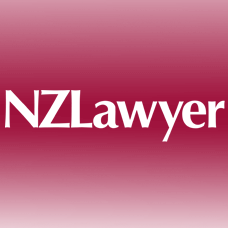House price valuations soar in Auckland
Big house-price increases in Auckland's property revaluation exercise will not necessarily lead to a big hike in rates, says council finance chief Andrew McKenzie.
Big house-price increases in Auckland's property revaluation exercise will not necessarily lead to a big hike in rates, says council finance chief Andrew McKenzie.
The Auckland Council yesterday released the preliminary findings for the latest exercise, which showed huge rises in the worth of houses in inner-city suburbs.
Grey Lynn and Westmere had the biggest increases, with an 18 per cent rise in property values, followed by Pt Chevalier, Western Springs, Kingsland and Sandringham (up 13 per cent), Mt Eden and Epsom (up 10 per cent), Ponsonby and Freemans Bay (up 9 per cent), Mt Roskill (up 8 per cent) and One Tree Hill, Greenlane, Onehunga, Oranga, Penrose, Three Kings and Royal Oak (up 7 per cent).
Normally a revaluation means a rates rise for properties above the average rise and a rates reduction for properties below the average.
But with the Auckland Council about to embark on a single rates system next year, Mr McKenzie said the latest property revaluations were just one factor that would impact on rates.
Other factors included adopting capital value instead of land value used by some of the former councils and decisions on business differentials, targeted rates and uniform charges.
How the council set the uniform charge alone had a "massive impact" on rates, he said.
Aucklanders will not know the impact on next year's rates until Mayor Len Brown releases his draft long-term budget on October 27 - the same day individual property revaluations go out in the mail.
While the central-city suburbs have fared best, Rodney, Waitakere and North Shore suburbs showed mainly decreases.
Peter McKay, the council's valuation team leader, said the Auckland region, which stretches from Wellsford to Pukekohe, had generally showed up a movement of plus or minus 10 per cent, a relatively minor shift compared with Auckland City's revaluation of 2005 when a 40 per cent value increase was recorded, he said.
He said a team of about 40 valuers from the council and Quotable Value had conducted an independent and professional exercise which had nothing to do with setting rate policy or charges and was scrutinised by the Auditor-General.
Rodney's dramatic property value fall could be put down to its last valuation exercise being on September 1, 2007 - it had not been revalued since because of council amalgamation. Mr McKay said the new revaluations brought all Auckland properties into one valuation cycle.
Mr McKay put the rises in the inner-city area down to its popularity.
"It's a reflection of what's happening in the market. The trend is clear that those older, traditional inner-city suburbs have seen the biggest increases," he said, noting that the already established and pricey suburbs of Herne Bay and St Marys Bay had risen only 5 per cent.
The facts
* $354 billion: Capital value of Auckland's real estate.
* 516,000: Number of properties that have been revalued.
* 98 per cent of property owners accept the valuations they receive. Property owners objecting to their valuations must lodge notice before December 16.
* 86 per cent of Auckland properties are residential.
* Three years: Gap between valuation exercises.
By Anne Gibson and Bernard Orsman | Email Anne
Published Courtesy of NZ Herlad Online
Source: NZ Herald Online
Posted: 4 Oct 2011
News articles
Browse articles
by date


